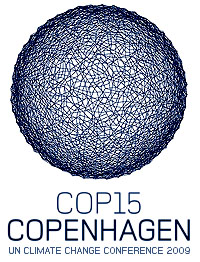 David Corn and Kate Sheppard have a pretty good first-draft-of-history tick-tock on the final round of negotiations at Copenhagen, and you should read their whole piece. But just to get a flavor of the thing, here’s how the final few minutes of the dealmaking went down according to Brazilian Ambassador Sergio Serra:
David Corn and Kate Sheppard have a pretty good first-draft-of-history tick-tock on the final round of negotiations at Copenhagen, and you should read their whole piece. But just to get a flavor of the thing, here’s how the final few minutes of the dealmaking went down according to Brazilian Ambassador Sergio Serra:
As the discussion continued, Obama dropped a term on the table: “examination and assessment.” This suggested direct monitoring of Chinese emission curbs by outsiders. Chinese officials in the room pronounced it unacceptable.”We weren’t that happy with it, either,” Serra noted. So a new description—”international consultations and analysis” — was worked out. A “consultation” is obviously less intrusive than an “examination.” But what does “international consultations and analysis” — soon to be referred to as ICA — mean? Asked this, Serra shrugged and said, “Ehhhh.” He added, “The definition will be negotiated by a panel of people. They will decide what it means, like everything else.” Obama promised to sell this not-well-defined ICA phrase to the Europeans. He also told Wen and the others that he had been asked by the Europeans to push for the below-2 degrees level.
The resolution of that six-word dispute eased the US-China deadlock that had paralyzed the summit, creating space for an agreement that may not be an agreement — christened the “Copenhagen Accord.”
This is worse than an arms control negotiation. Yuck. And of course, the final agreement is almost comically vague, providing no numerical targets at all except for those in Appendix I, which is entirely blank. Each individual country will fill it in later. In other words, there’s virtually nothing here except for a vague agreement that, yes, global warming is real and we probably ought to do something about it someday.
On the other hand, this post from Bill McKibben about how Barack Obama has “gutted progressive values” seems pretty over the top. Copenhagen obviously didn’t produce much of an agreement, but it’s hard to see how Obama is the big villain in all this. He’s hemmed in domestically by Congress and internationally by China and other countries that flatly aren’t willing to accept tough limits, and it’s a little hard to see how he could have waved a magic wand and changed this.
Still, there’s no two ways about it: by last September it was already obvious that Copenhagen wasn’t going to produce much, and it managed to fail even those low expectations. The only minuscule bright spot is that what we got was slightly better than what seemed likely Friday morning: total chaos and a complete breakdown. By that low bar, producing a piece of paper of any kind counts as a success.


















